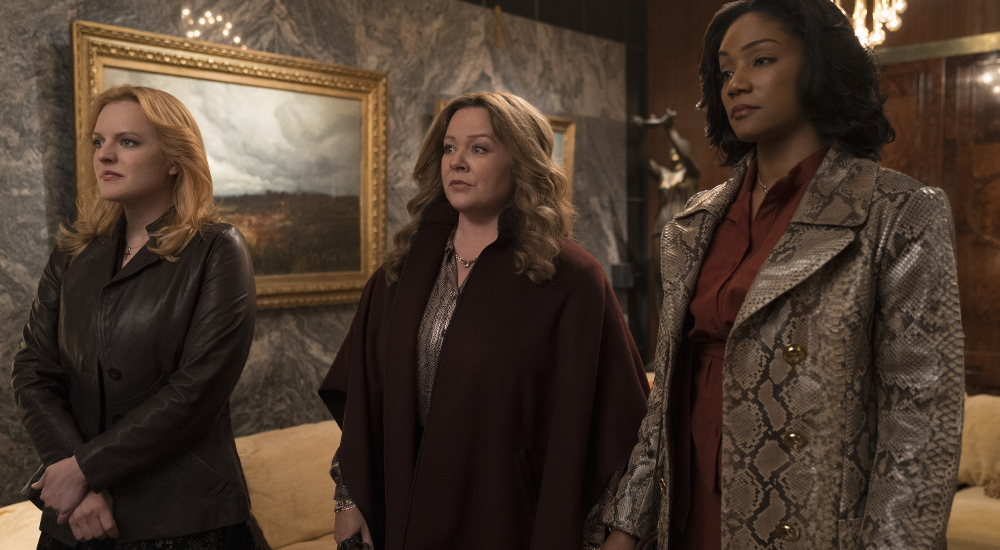When this many amazing people get together for a project, you expect something truly special. So it can't help but feel disappointing when the project turns out merely adequate. The Kitchen had potential to be one of the best mob movies ever, but ends up as a pale imitation of the genre's best films. Like the cover of Fleetwood Mac's "The Chain" that plays twice in the film, it features many talented women coming together for an adaptation that doesn't put any distinct spin on what we already know.
Melissa McCarthy, Tiffany Haddish and Elisabeth Moss play the wives of three low-level criminals (Brian D'Arcy James, James Badge Dale and Jeremy Bobb, respectively) who go to prison after getting caught robbing a liquor store. Unable to survive on the meager subsistence they get from the local mob boss, they aggressively move in to become enforcers, then start taking over Hell's Kitchen little by little. The film moves step-by-step from one scene to the next, but never has any narrative thrust.
The period detail is exquisite, and the acting is good, but it never gels into something of its own. The dialogue (from Oscar-nominated screenwriter Andrea Berloff, making her directorial debut) is supposed to be powerful, but often falls flat. It's hardly natural. Instead, we mostly get pronouncements about how tough women had it in the 1970s. (True as it is, it doesn't make for a good script.) The audience is nudged aggressively whenever there's a reference to feminism. "Gloria Steinem shit," a supportive mob boss's wife tells our trio as they pass on the street. The film is better when it shows, rather than tells us, that these women are stronger than their lousy husbands and colleagues.
When the violence becomes more shocking in the last act, it gives the film a much-needed jolt. But even a bold twist late in the film seems to have no impact once that scene is over. Instead, the clichés pile up: someone gets greedy, someone avoids a death sentence with a clever deal, someone close to the family commits an act of betrayal. It's another rise and fall from the underworld, but the only difference is that its leads are women. To create something memorable, that's not enough.

